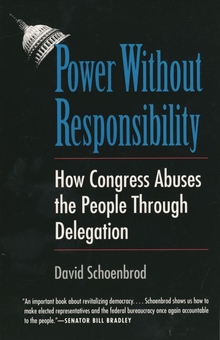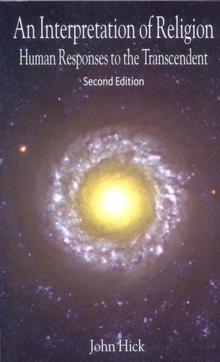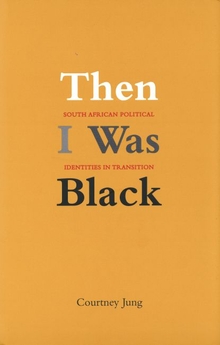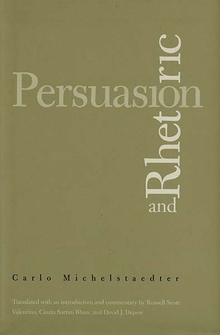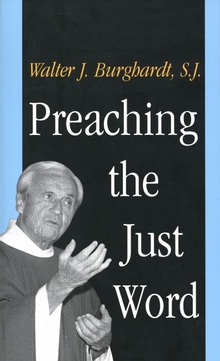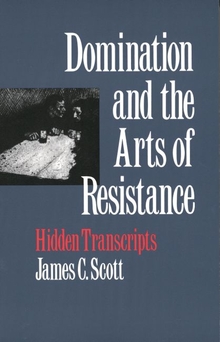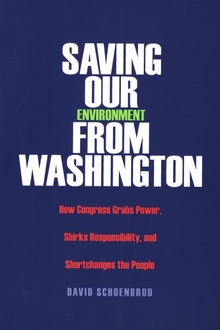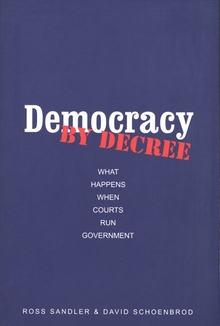Power Without Responsibility
WARNING
You are viewing an older version of the Yalebooks website. Please visit out new website with more updated information and a better user experience: https://www.yalebooks.com
How Congress Abuses the People through Delegation
David Schoenbrod
David Schoenbrod shows that Congress and the president, instead of making the laws that govern us, generally give bureaucrats the power to make laws through agency regulations. Our elected "lawmakers" then take credit for proclaiming popular but inconsistent statutory goals and later blame the inevitable burdens and disappointments on the unelected bureaucrats. The 1970 Clean Air Act, for example, gave the Environmental Protection Agency the impossible task of making law that would satisfy both industry and environmentalists. Delegation allows Congress and the president to wield power by pressuring agency lawmakers in private, but shed responsibility by avoiding the need to personally support or oppose the laws, as they must in enacting laws themselves.
Schoenbrod draws on his experience as an attorney with the Natural Resources Defense Council and on studies of how delegation actually works to show that this practice produces a regulatory system so cumbersome that it cannot provide the protection that people need, so large that it needlessly stifles the economy, and so complex that it keeps the voters from knowing whom to hold accountable for the consequences. Contending that delegation is unnecessary and unconstitutional, Schoenbrod has written the first book that shows how, as a practical matter, delegation can be stopped.
"Schoenbrod has written an important book about revitalizing democracy. Federal bureaus are often unaccountable, delegation of rule-making is one of the reasons. Everyone needs to assume responsibility, not shirk it. Schoenbrod shows us how to make elected representatives and the federal bureaucracy once again accountable to the people."—Senator Bill Bradley
"Schoenbrod conclusively demonstrates that congress' habit of conferring the power to make laws upon administrative agencies damages American democracy, liberty, and prosperity. Not least, covert legislation by regulatory agencies undermines the rule of law. Power Without Responsibility is a necessary book."—Judge Robert H. Bork
"Few subjects are of such pervasive importance to the way we are governed as delegation. Power Without Responsibility is without question its definitive treatment to date."—John Hart Ely, Robert E. Paradise Professor, Stanford Law School
"Schoenbrod provides a serious and thoughtful critique of congressional delegation, but more importantly, goes beyond existing work by showing how our government would operate if Congress exercised power responsibly, and by making a positive case for how the judiciary could push Congress in that direction. This is a work of compelling interest to academics, public officials and concerned citizens."—Morris Fiorina, Professor of Government, Harvard University
"This book cogently argues that governmental invasions of individual liberty could be curbed more systematically by enforcing not only the Bill of Rights' specific protections for particular rights, but also the constitution's overall checks on law-making power in general. It makes a persuasive case that, by circumventing those checks, the delegation of broad law-making power to administrative agencies severely undermines a major liberty-protecting aspect of our constitutional system."—Nadine Strossen, Professor of Law, New York Law School; President, American Civil Liberties Union
"An important book that will alter received wisdom on the virtues of the administrative state."—Samuel Estreicher, New York University School of Law
"Schoenbrod's well-detailed book is fascinating reading for anyone who wants to understand how Congress has weakened constitutional government and ducked responsibility by delegating its powers."—Dan Greenberg, Congressional Analyst
"Schoenbrod's book is the most comprehensive analysis to date addressing the failings of congressional delegation of lawmaking authority."—Harold J. Krent, Columbia Law Review
"A path-breaking study by Schoenbrod. . . . An original and devastating analysis that may have considerable political impact."—recommend Reviews
"An important contribution to the literature on delegation."—Choice
"A persuasive case for changing thinking and practice with respect to the delegation of legislative power. The analysis is cogent and insightful. . . . [Schoenbrod] understands, as many political scientists and lawyers do not, why Congress is and must be the linchpin of American democracy. It is these understandings, combined with his factual and legal knowledge, that give the author's critique of delegation its bite."—Joseph Cooper, Political Science Quarterly
"I would recomend this book to all open-minded and thinking economists and especially to the students of the history and economic doctrines."—Munir Quddus, The Southern Economic Journal
"An outstanding springboard for further discussion of the many questions that Professor Schoenbrod has boldly chosen to face. . . . A powerful contribution to a perennial debate on fundamental issues."—Gary Lawson, Public Interest Law Review
"The virtue of Democracy by Decree lies in its clear exposition of the problem of courts running government. Before we can find the solution, we must first understand that something has to be solved. The authors have done a commendable job in showing that the United States is suffering from judicial usurpation of legislative and executive functions and their book deserves a wide reading."—George C. Leef, Regulation
"A rallying cry for better government."—Harvard Law Review
Publication Date: August 30, 1995

